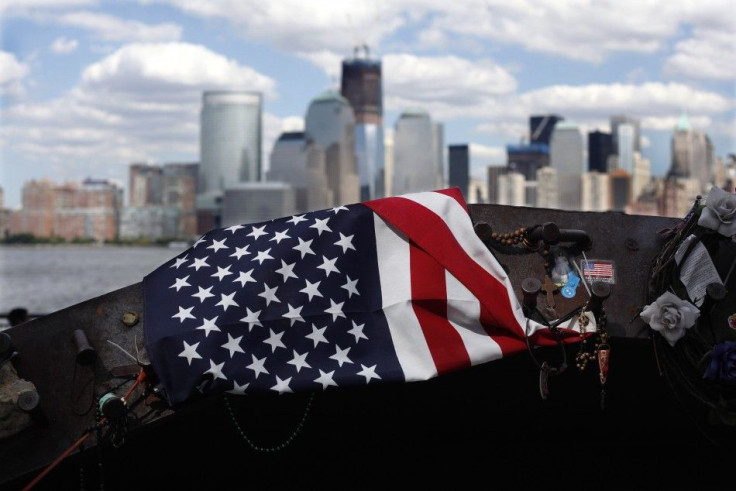Sept. 11, 2001 - What Happened, and Where Are We Now?
ANALYSIS

Sept. 11, 2011 was a watershed moment in both American and global history, a day in which attacks perpetrated by the terrorist organization Al Qaeda claimed nearly 3,000 lives, fundamentally reshaped the country's political landscape and propelled U.S. troops into a series of foreign conflicts.
At 8:46 a.m. an airplane traveling at hundreds of miles an hour slammed into the north tower of the World Trade Center in New York City, the United States' largest city, and the financial, political, and media capital of the world. At 9:03 a.m. a second plane exploded into the south tower, dispelling any perception that the first crash had been an accident. Both towers collapsed by 10:30 a.m.
At 9:37 a.m. a third airplane hurtled into the side of the Pentagon building -- the U.S. Department of Defense's headquarters -- in Washington, D.C., and at 10:03 a.m. a fourth plane, later revealed to be bound for either the White House or the U.S. Capitol, crashed into a field in southern Pennsylvania.
The attacks were carried out by 19 young Arabs who overwhelmed flight crews on the respective planes with box cutters, small knives and cans of Mace or pepper spray. Passengers on the plane that crashed into Pennsylvania successfully resisted and led the hijackers to bring the plane down before it could reach its target.
The operation was masterminded by Osama bin Laden, the scion of a wealthy Saudi Arabian businessman who joined mujahideen fighting the Soviet Union's occupation of Afghanistan in the 1980s and subsequently founded al-Qaida.
Bin Laden used his wealth to form the organization and channeled popular grievances against the United States to preach jihad, or holy war. Al-Qaida had formerly carried out missions that included bombing the U.S. embassies in Tanzania and Kenya in 1998 and the USS Cole in 2000, but the 9/11 attacks represented the culmination of bin Laden's desire to launch an attack on U.S. soil.
On Oct. 7, 2001, the- President George W. Bush announced the start of Operation Enduring Freedom, an invasion of Afghanistan intended to wipe out al-Qaida and the Taliban, a hardline Islamic ruling regime that had close ties to al-Qaida.
Still Early in the Sept. 11 Examination Process
From a security standpoint, the events of Sept. 11 have touched nearly every dimension of American life and also modified the lives of citizens in other nations, although in some cases not with the comprehensiveness of the U.S. changes.
Further, whether it's increased screening procedures and security measures at international airports, the increased costs that businesses and other organizations bear as they increase security for their buildings and property, or the efforts by organizations, public and private, to enhance the dialogue between cultures, it is not a stretch to say that the events of Sept. 11 altered the way of living in the modern world, whether one lives in the west or the east.
What's less clear, as the United States and the world starts the second decade after 9/11, is what will be the lasting economic, social, and/or political changes -- or even if there will be any lasting changes at all -- as a result of the attack.
The western world, and more broadly, most of the free, democratic world is united around the values of democracy, human rights, respect for all cultures/diversity, and the rule of law and opposition to terror in any form.
However, the West and several non-western nations are not united on the appropriate response to Sept. 11 -- or even agree on the attack's primary cause.
And that lack of unity is not unusual for an historical event as large as Sept. 11, 2001. It can often take decades for a consensus to emerge regarding an event's cause, impact, and what constituted (or constitutes) the proper response -- the Great Depression of the 1930s is one example.
Sept. 11 was that type of an event, which is another way of saying we are only in the beginning of the effort to determine what led to it, and what needs to change.
© Copyright IBTimes 2025. All rights reserved.




















